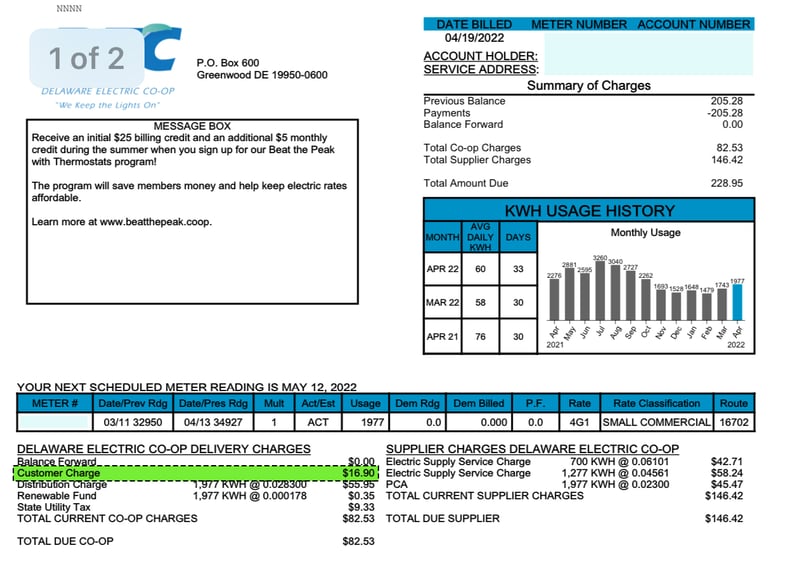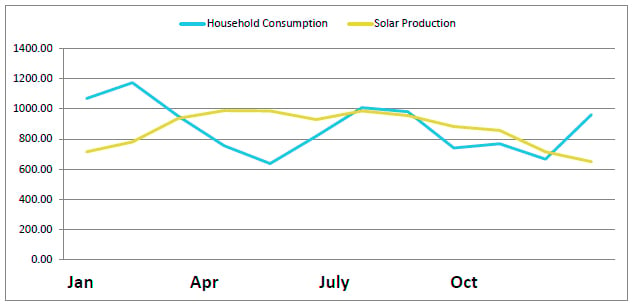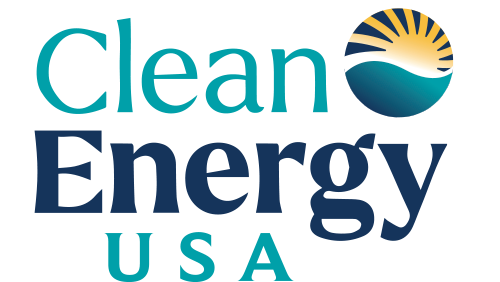
What Happens To My Utilities When I Go Solar?
When your solar PV system is connected to the grid, it’s crucial that you understand how your home’s solar-powered electrical system interacts with the local utility.
A system that’s tied to the grid takes energy from it as needed, but then sends energy back to the grid when your solar panels generate “extra” electricity. Generally speaking, grid-connected solar arrays are more efficient and more cost effective than off-grid systems. This is mainly because of the sheer number of batteries you would need to power your home while living totally off grid. It can be prohibitively expensive!
So, even after installing solar panels, your customer-provider relationship with your utility company will continue—but to what extent and how does it change? Let’s discover how solar energy alters how you interact with your utilities.
Your Solar Panel System & the Electric Bill
A solar installation provides undeniable, tangible value. It drastically reduces what you’ll need to pay every month on your electric bill, resulting in cost savings that could be used to offset other expenses that are on the rise due to inflation. However, no matter how much or how little energy your panels generate, you will usually have to cover a baseline cost with your utility company.
Typically referred to as “customer charges,” these fees are designed to recover the basic costs associated with electric service incurred by the electric utility regardless of whether or not a customer uses solar energy. Customer charges account for a company’s investment in various equipment, such as poles, wires, and transformers, along with labor costs.

Delaware Electric Co-op bill highlighting a Customer Charge of $16.90
Aside from customer charges, solar does reduce your utility bill. Your solar panels access the sun’s energy, thereby using less energy as provided by your local utility company. The actual amount you end up paying on your monthly bill is calculated through a set of standards. Your local utility monitors the amount of electricity you use via your electric meter—this consumed electricity is measured in kilowatt hours (kWh), which has specific rates and delivery charges.
To determine the cost of your electric bill, the utility company will multiply your rates by the amount of kWh you consume over the course of a month. Local and state taxes are then added to the bill to land on the total amount you owe. The ultimate goal of solar power is to reduce your kWh as much as possible to lower your energy usage and bring down that bill.
Generally speaking, grid-connected solar arrays are more efficient and more cost effective than off-grid systems.
What Charges Are Eliminated By Solar Energy?
You might be asking yourself, “If I’m still paying a fee, what’s the point of installing solar panels?” Finding the answer to that is as simple as taking a quick look at the monthly statement you receive from the electric company. Solar panels will reduce or eliminate the electricity delivery part of your bill, as well as the supply charge.
- Delivery Charge: The amount you pay utility companies to transport electricity to your home over their power lines.
- Supply Charge: The cost of energy itself. Supply charges are variable and may change depending on different factors on a monthly basis.
By reducing or eliminating the delivery and supply sections, you are removing the bulk of charges on your monthly electric bill. While this doesn’t get you to total energy independence, it’s certainly a step in the right direction—and saving some money is never a bad thing.
Your Year in Solar
Your system design is based on annual production vs. consumption. At various points of the year consumption will exceed production, while at other times the reverse is true. Below is a graph depicting what your year in solar might look like.

What is the Connection Between Net Metering and the Grid?
Net metering is a crucial component of the solar panel experience and a big part of why you should go solar, which is why we are constantly bringing it up! Essentially, net metering is a policy that gets you a credit on your electric bill for any excess electricity you return to the grid. The program, made available by law in Delaware, ensures that you are only billed for the “net” energy used every month. What’s more, Delaware’s net metering program requires utility companies to compensate renewable energy sources at retail rates.
Solar Energy & Your Utilities
While the utility company doesn’t magically disappear when you install solar panels on your home, your relationship with the grid is shifted more in your favor. Solar panels even the playing field so that customers can manage their own power source, while continuing to work with the utility company in a way that favors your finances.
